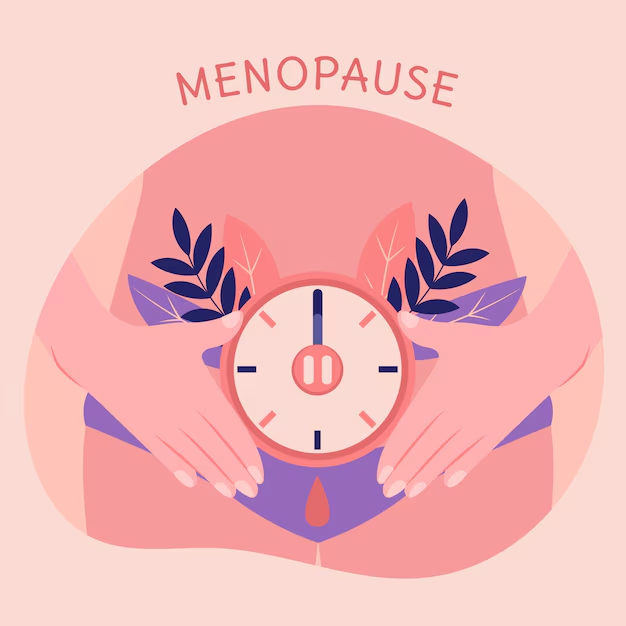
Genitourinary Syndrome of Menopause (GSM) is a common but often overlooked condition that affects many women during and after menopause. It is caused by a decline in estrogen levels, leading to a range of symptoms that can affect daily life and intimate relationships. We explore what GSM is, its causes, and the available treatment options with expert insights from Dr Manvi Verma, Cosmetic Gynaecologist & Female Sexologist, at Motherhood Hospital Kharghar.
GSM is a collection of symptoms that affect the genital and urinary systems of women going through menopause. "GSM occurs due to a decline in oestrogen levels, which leads to changes in the vaginal tissues," explains Dr Manvi Verma, Cosmetic Gynecologist and Female Sexologist at Motherhood Hospital, Kharghar. Estrogen plays a crucial role in maintaining the health and elasticity of vaginal tissues. When these hormone levels drop, the vaginal walls thin, becoming dry and less elastic, which can lead to discomfort.

Some common symptoms of GSM include vaginal dryness, itching, burning, painful intercourse, and urinary issues such as incontinence or recurrent infections. These symptoms can vary from mild to severe, affecting the quality of life for many women. Dr Verma emphasises that "the discomfort associated with these symptoms can make daily activities and intimate relationships challenging."
The primary cause of GSM is the natural decline in estrogen during menopause. Estrogen is responsible for maintaining the thickness, lubrication, and elasticity of the vaginal tissues. As levels drop during menopause, these tissues become thinner, drier, and more prone to irritation.

"Menopause marks a significant transitional phase in a woman’s life," says Dr. Verma. Women typically experience menopause between the ages of 45 and 55, although some may enter menopause earlier due to surgery or other medical conditions. Perimenopause, the stage leading up to menopause, can also trigger early symptoms of GSM. Dr Verma adds, "Women are more likely to undergo several physical and psychological changes during the perimenopause and menopause period."
Don't Miss: 5 Shocking Side Effects of Cold Drinks
Aside from the vaginal symptoms, GSM can also affect the urinary tract. This includes increased susceptibility to urinary tract infections, urinary urgency, and incontinence. These symptoms are due to the thinning of the tissues in the urethra and bladder, making them more sensitive and less resilient to infections and irritation.
Fortunately, GSM is treatable, and there are several approaches to managing its symptoms. Dr. Verma highlights that treatment can be customised based on the severity of the symptoms and a woman's individual needs. Here are some of the effective treatment options:
Other options include pelvic floor physical therapy, which strengthens the pelvic floor muscles, improving sexual function and bladder control. Counselling and therapy may also help address psychological factors impacting sexual satisfaction.
Don't Miss: What Is Secondary Infertility? Expert Shares What To Do When You Can't Conceive Again
Genitourinary Syndrome of Menopause is a treatable condition, and women experiencing these symptoms should not hesitate to seek help. "Proper evaluation by a qualified cosmetic gynaecologist and female sexologist is essential for determining the best course of treatment," advises Dr Verma. With various treatment options available, from hormone therapy to advanced regenerative therapies, women can navigate menopause with confidence and maintain their quality of life.
By understanding the available treatments and seeking professional guidance, women can manage GSM symptoms and sexual health concerns effectively, improving their overall well-being.
Image Credits: Freepik
If you liked this story, then please share it. To read more such stories, stay connected to HerZindagi.
Our aim is to provide accurate, safe and expert verified information through our articles and social media handles. The remedies, advice and tips mentioned here are for general information only. Please consult your expert before trying any kind of health, beauty, life hacks or astrology related tips. For any feedback or complaint, contact us at [email protected].
